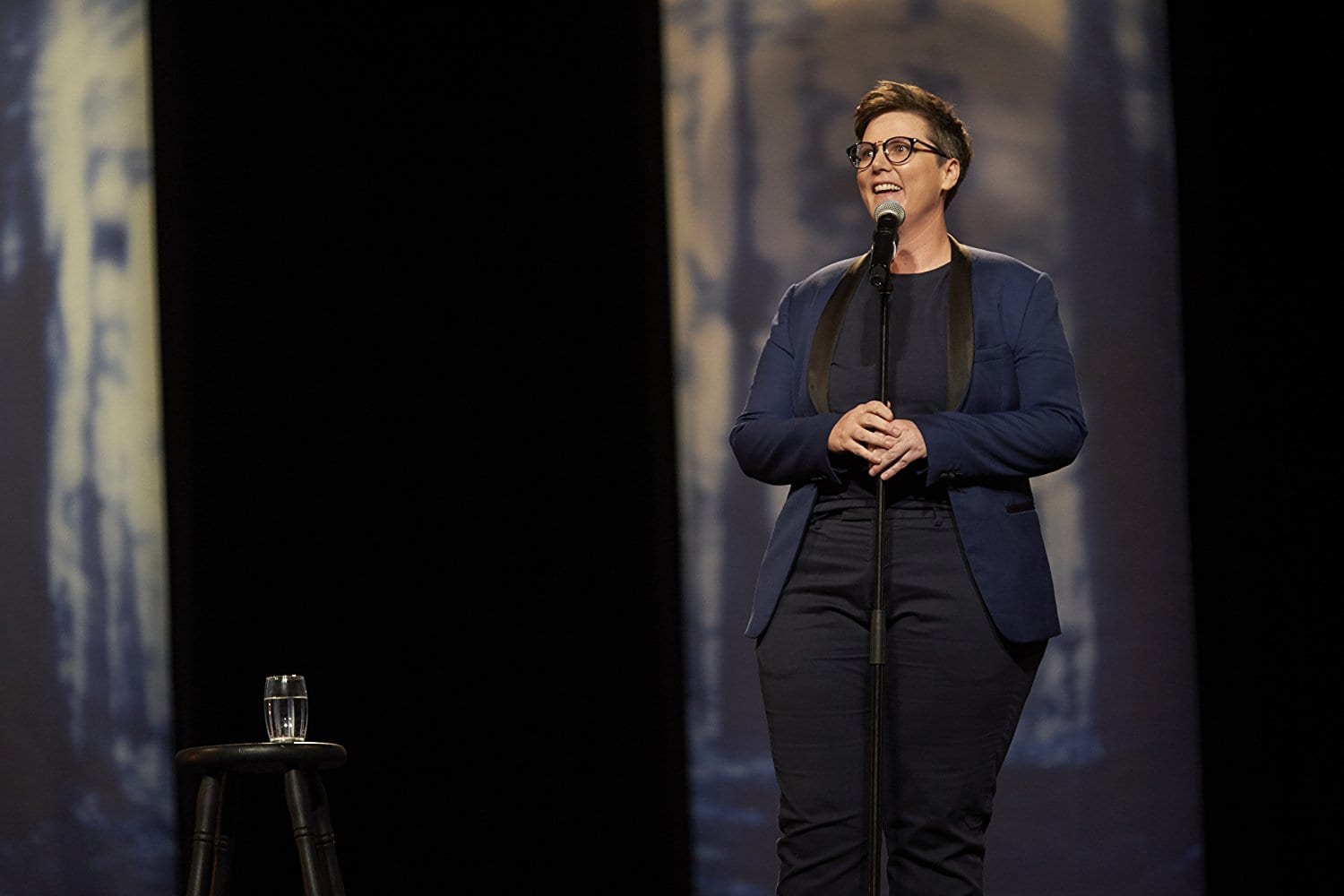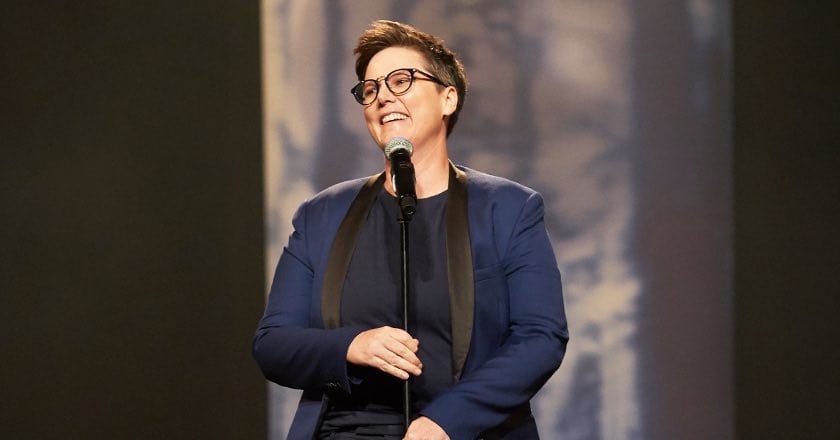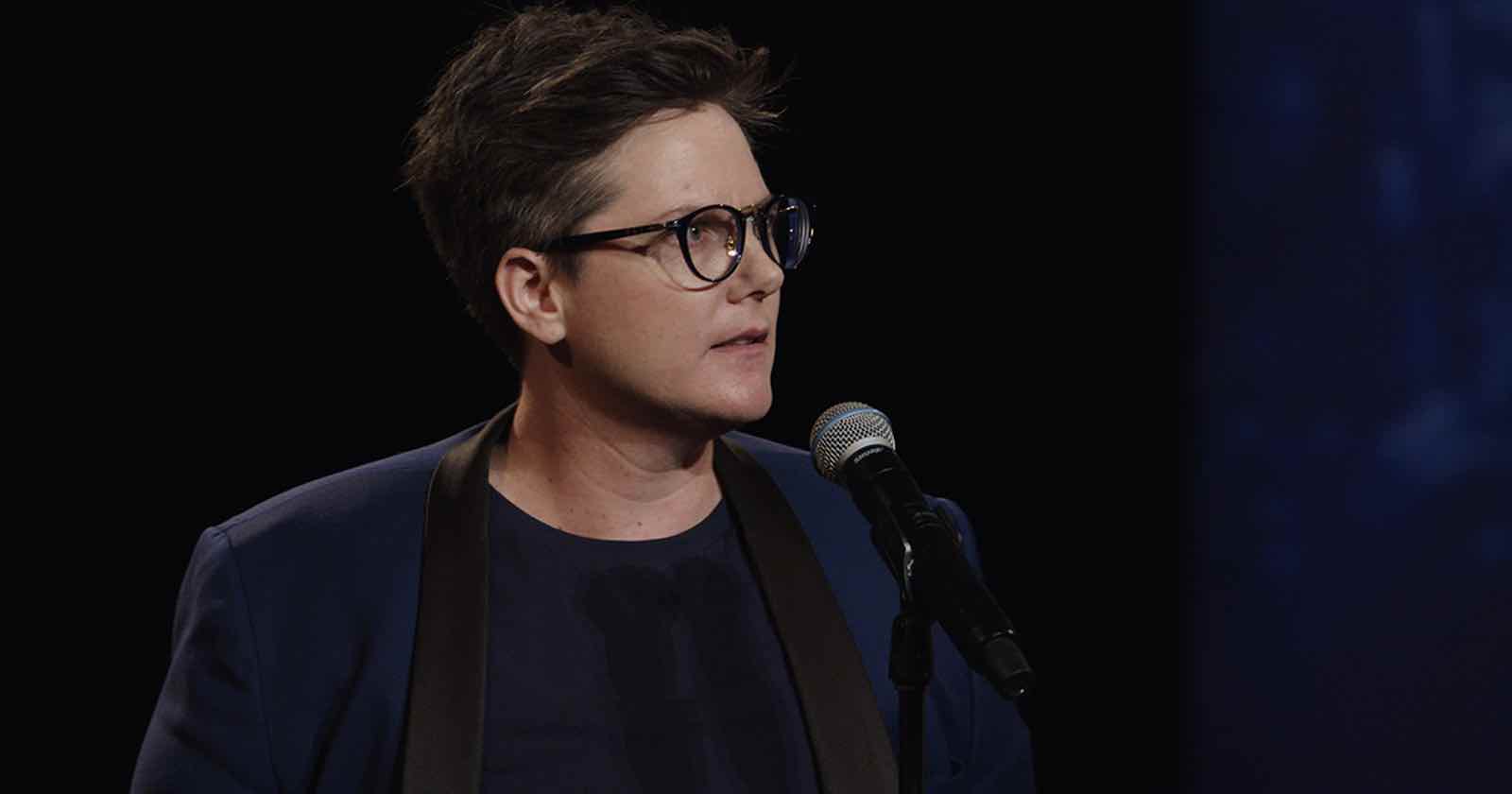
‘Nanette’: More tears of discovery than laughs
“Comedy” and “comic” are appropriate words to discuss Australian Hannah Gadsby’s hour-long live set – possibly more in reference to reviewers’ reactions than anything else. No one quite knows what to make of it.
Coverage varies from labeling Nanette the apotheosis of deconstructivist comedy, to something closer to nihilism, to total bewilderment as to its relation to any known comedy genre.

Reactions to performance art like Gadsby’s – confessional as it is – are reminiscent of critical reception to the absurdist inventions of mid-20th-century playwrights like Samuel Beckett. Waiting for Godot wasn’t definable within a genre at the time – it just was. Nanette just is.
Explaining her sudden significance hitting the current zeitgeist, Gadsby opened up to Forbes that Nanette was written because she “wanted the audience to have a bit of a shock.”A comedy veteran down under, Gadsby responded to critics lauding her as a “major new voice” by revealing that her show’s razor-edge tenacity was entirely deliberate. “I’ve been pushing the envelope a little bit for a long time, then I decided to tear it open with a knife instead.”

As she clearly lays out at the beginning of her set, Nanette is devised as Gadsby’s farewell show to comedy. Though she has since reneged on this statement (admitting she’d have to be “an idiot” to quit now), the show is a bottomless rallying cry for self-preservation regardless: a seemingly finite exclamation point built of blades.
A short video intro reveals a full-figured, bespectacled Gadsby at home, surrounded by her animals and the bric-a-brac of daily life, before segueing to the Sydney Opera House. Gadsby, dressed minimally, forms a stark contrast to the venue’s magnificent interior.
Like other “edgy” acts possessing an oblique relationship to traditional standup, it’s clear from the outset the piece will depend more on wits and perspective than outright laughs. The humor that does remain, though, is served up on the serrated edge of a Wüsthof slicer.

Nevertheless, some of the early material in Gadsby’s routine fits squarely in the mold of standup comedy. Her comic persona seems to begin and end with her identity as a Tasmanian lesbian; though clever and on point, the jokes aren’t laugh-out-loud funny.
Despite a static physical quality, Gadsby can certainly command a crowd. A certain disconnect between the jokes and the persona lends an aloofness throughout her performance. Jokes are punctuated by rueful chuckles and half-smiles, harbingers of the emotional carnage in wait.
Early in the set, Gadsby announces, completely outside any comic pretext, her retirement from comedy; she considers it a fiction resting on a foundation of lies and her jokes unrelated to the truth of her life; she vows she can no longer pursue selling these lies to attract ticket buyers.

This thread is picked up in the final section of the piece: a circuit-breaker is thrown and Gadsby transforms into an anguished wild animal baring its soul. She explains lying was the glue that held her act together, and when audiences are given the unvarnished truth of her unbearable, dehumanizing life, they do not laugh.
In a searing, non-comedic twist on the traditional callback, Gadsby illustrates by referencing an earlier joke about a seemingly harmless threat from the boyfriend of a girl she was hitting on – except instead of a mere tale of harsh words, we are told this man physically attacked Gadsby before callously inactive bystanders, causing serious injuries.
The rest of the set takes the form of a litany delivered in a tormented shout. Gadsby explains she has suffered frequent terrorizing as an outsider, one of society’s misfits – a lifelong humiliation. In a crescendo of achingly recounted abuses, she details childhood molestation and constant mental and physical maltreatment, including horrific rapes.

Baring her teeth in a contorted grimace, Gadsby tearfully shouts she has been despised her whole life by perfect strangers, and has even taken on these others’ views of her as despicable, unworthy of love, an outsider to everyone, everywhere.
It is heartbreaking.
Perhaps not what a lighthearted comedy seeker might wish for, Nanette is nonetheless a sort of sodden discovery – it’ll reduce you to tears right alongside Ms. Gadsby.



